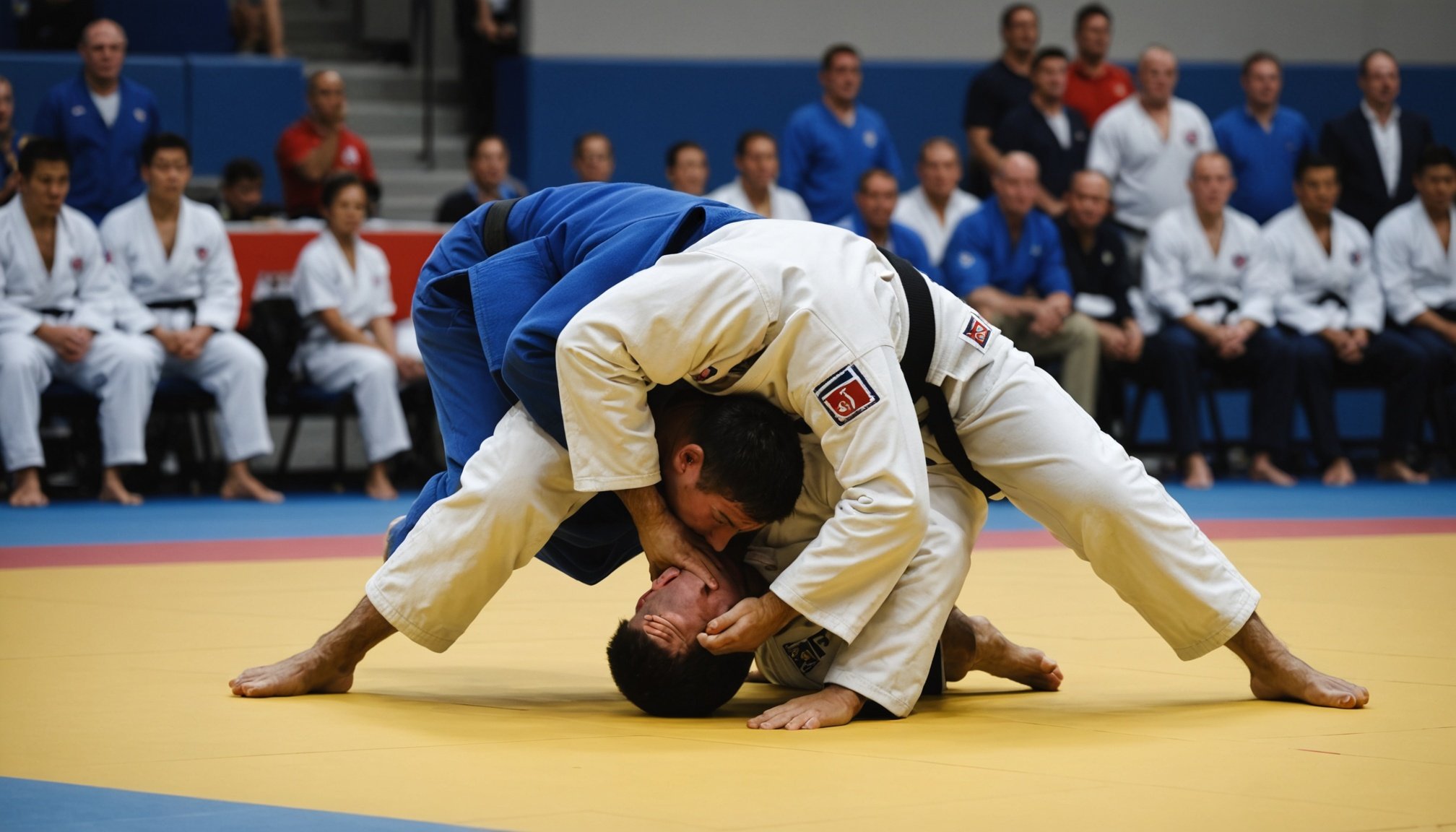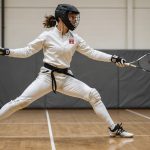Importance of Mental Toughness in Judo
Mental toughness is a critical attribute for success in judo, influencing both performance and outcomes in competitions. In an intense and strategic sport like judo, where every match demands quick decision-making and adaptability, an athlete’s mental resilience is just as vital as their physical prowess. While physical toughness involves strength and endurance, mental toughness encompasses an athlete’s ability to remain focused, composed, and confident, especially under pressure.
In competitive judo, athletes frequently face challenging scenarios that test their composure and determination. Here, mental resilience plays a key role, allowing them to recover from setbacks and maintain peak performance. The mental aspect of judo can often determine the outcome of a match, as it involves maintaining a tactical mindset, managing stress, and executing strategies effectively.
Also to read : Boost your water polo goalkeeper’s reflexes: essential drills for peak performance
Comparatively, while physical toughness builds a judo athlete’s capability to withstand physical duress, mental toughness enables them to harness their full potential and optimize decision-making. Understanding this distinction helps emphasize the importance of developing mental skills alongside physical training, ensuring that athletes are well-prepared to handle the demands of high-level judo competition.
Psychological Techniques for Enhancing Resilience
Building strong mental resilience is pivotal for judo athletes aiming to excel in competitions. Top athletes employ various psychological strategies to bolster their mental toughness. One pivotal technique is visualization, where athletes mentally rehearse scenarios they might face in a match. This helps them prepare responses to different actions, leading to better in-the-moment decisions.
Have you seen this : Unleash Your Fencing Potential: Master Footwork for Unmatched Agility and Speed
Equally important is positive self-talk, which involves using affirmations to boost confidence. By regularly engaging in affirmations, athletes reinforce a mindset that fosters resilience, even under pressure. For instance, repeating phrases like “I am focused and ready” can transform their mental state during critical moments.
Imagery is another tool athletes use. In this process, they vividly imagine successful performances, enhancing their confidence and reducing anxiety. This makes their training not just a physical, but a mental rehearsal for actual competition settings.
By integrating these techniques into their judo training, athletes equip themselves with the mental fortitude necessary for success. Strengthening resilience through these methods is as vital as physical preparation, empowering athletes to perform their best and stay composed when it matters the most.
Scientific Studies on Mental Toughness
Exploring research studies related to mental toughness assessment reveals fascinating insights into how this quality impacts judo performance.
Key Research Findings
Studies have consistently demonstrated a strong correlation between mental toughness and athletic performance in judo. Athletes with higher mental toughness scores often outperform peers, regardless of physical capability. Through assessments like questionnaires and psychometric tests, researchers can quantify this mental resilience, pinpointing attributes such as focus and stress management.
Correlation Between Mental Toughness and Performance
The correlation is evident: judo athletes with robust mental toughness navigate competitive stress more effectively. They exhibit quicker decision-making and show enhanced adaptability within matches. These qualities manifest as strategic advantages, often making the difference between winning and losing.
Implications of Research for Judo Training
Applying these findings, coaches and trainers can focus more on developing mental toughness, alongside physical skills. By incorporating mental toughness exercises into routine training, athletes are better prepared mentally, leading to improved competition performance. Therefore, understanding mental toughness through scientific studies is crucial for evolving judo training methods.
Case Studies of Successful Judo Athletes
Many renowned judo champions exemplify phenomenal mental toughness, illustrating how resilience can propel athletes to success. Take, for instance, the story of Yasuhiro Yamashita, a judo legend who remained unbeaten in 203 consecutive matches. Despite facing injuries and setbacks, his unwavering mental resilience was key to achieving such a remarkable record. Yamashita’s journey underscores how psychological strength often outweighs physical adversities.
Moreover, France’s Teddy Riner, another iconic figure in judo, attributes his success not only to his physical prowess but also to his mental fortitude. Known for utilising psychological techniques, Riner effectively leverages visualisation and positive self-talk to maintain focus in high-pressure situations. His ability to remain composed and execute strategies efficiently is a direct result of his structured mental approach.
From these athlete stories, we can draw essential lessons. These champions demonstrate that mental resilience is not just an innate trait but a quality cultivated through disciplined psychological training. Such stories inspire emerging athletes, highlighting the impact of mental toughness in their journeys and offering valuable insights into developing their own resilience in the sport.
Actionable Tips and Exercises for Coaches and Athletes
Ensuring athletes develop comprehensive mental toughness is essential in judo, and specific strategies can aid this process.
Daily Mental Routine Suggestions
Incorporating a structured mental routine daily can build resilience for athletes. Start with a mindfulness session focusing on breath control and relaxation, calming the mind before intensive training. Follow this with a visualisation session, where athletes imagine successful movements and outcomes in competitions. This not only prepares the mind but also enhances confidence, reinforcing positive performance habits.
Group Activities to Foster Resilience
Group exercises can enhance team cohesion and individual resilience. Engage in scenario-based role plays where athletes act out potential match situations, allowing them to practice mental responses collectively. Discussions post-exercise can help teammates share strategies, fostering a supportive environment for mental growth.
Individual Practices for Personal Development
Athletes should engage in personal mental exercises daily for continued development. Activities such as journaling allow athletes to reflect on personal growth and setbacks, guiding learning and adaptation. Additionally, setting personal goals and affirmations tailored to individual aspirations can help maintain a positive and motivated outlook, vital in progressing mental resilience.
Expert Insights and Interviews
Gleaning wisdom from judo coaches and sports psychologists can significantly enhance the development of mental toughness in athletes. Coaching advice from seasoned professionals often highlights the critical role of mental resilience in a sport as demanding as judo. Experienced coaches, through expert interviews, frequently emphasize the necessity of cultivating a mental environment where athletes thrive under pressure.
Sports psychologists, experts in sports psychology insights, focus on bespoke strategies tailored to individual athlete needs. They delve into personalized vs group mental resilience techniques, understanding athletes’ unique stress triggers and developing coping mechanisms.
Professionals often recommend integrating mental exercises directly into judo training tips. Techniques such as guided visualization during practice sessions or structured mental debriefs post-training can foster mental toughness as effectively as physical drills. By merging physical and mental practices, coaches can offer holistic development, preparing athletes comprehensively for competition challenges.
These coaching advice insights empower both athletes and coaches to navigate the psychological dimensions of judo. By understanding the mental aspects through expert perspectives, the foundation for improved athletic performance is fortified, fostering greater success in competitive arenas.





